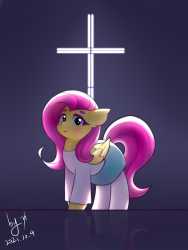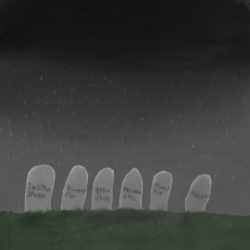Human becomes pony. How, why and what happens next are all up to you. New stories and art welcome!
Any type of transformation into ponies, gryphons, changelings, dragons, kirin, etc., whether OC or canonical, & Anonponies of all shapes and sizes.
Want to be the little pony? This is the thread for you.
Previously on PTFG:
https://ponepaste.org/10964 - Strangers to the Plain by OrwellRedenbacher - New!
https://ponepaste.org/10927 - Armor TF Green by JoshThePinkGump - New & Complete!
https://ponepaste.org/10753 - Planes, Trains and Hotel Chains by OrwellRedenbacher
https://ponepaste.org/10464 - Misadventures of Orwell Redenbacher by OrwellRedenbacher
https://ponepaste.org/10592 - Friendly Files by ReMastering
https://ponepaste.org/10607 - Turned Out by definitelynotapurplehorse
https://www.fimfiction.net/story/567872 - Turning Myself Into a Half-Ton Cybernetic Princess Luna In An Abandoned Woolworths To Prank My Friend at 3AM Challenge (Gone Wrong) (Gone Sexual) by Nightprincessluna - Complete!
https://ponepaste.org/10537 - Moth on the bulb by OrwellRedenbacher - Complete!
>>40293205 - Beach Walkhttps://ponepaste.org/10421 - Last moments by OrwellRedenbacher - Complete!
https://ponepaste.org/10320 - Cathode Ray Mission by OrwellRedenbacher - Complete!
https://ponepaste.org/10334 - Pon-E suicide funk by Gnisha - Complete!
https://ponepaste.org/10269 - Very self-indulgent unicorn stallion TF - Complete!
https://ponepaste.org/10206 - Mares With Guns by OrwellRedenbacher
https://ponepaste.org/9446 - Interstate by Ceiling Necromancer
https://ponepaste.org/9707 - Anu by Meslam
https://ponepaste.org/10203 - Cardboard Cutouts by OrwellRedenbacher
https://ponepaste.org/10220 - Of Beaks and Bullets by Kiyote
https://ponepaste.org/10173 - Chestnut Glaze by pogoman122 - Complete!
https://ponepaste.org/10081 - Daisy Belle by OrwellRedenbacher - Complete!
https://ponepaste.org/9985 - Go Ask Littlepip When She's Two And A Half Feet Tall by Darkdemonlucifer - Complete!
https://ponepaste.org/10012 - A Ticket To The Circus by Darkdemonlucifer - Complete!
https://ponepaste.org/7247 - The Pon-E Rewrites: Purple Black Gray by Alycorn
https://ponepaste.org/9521 - Nemetona by Meslam
https://ponepaste.org/9720 - Pink In The Club by AtomicGlow - Complete!
https://ponepaste.org/9600 - War Story by OrwellRedenbacher - Complete!
https://ponepaste.org/9485 - Monster musume pony tf 1 Papi - Complete!
https://ponepaste.org/9477 - Untitled Short Pet Story #1 by definitelynotapurplehorse - Complete!
https://ponepaste.org/9470 - New Moon
https://ponepaste.org/9450 - Twin Moon by Advisability - Complete!
https://ponepaste.org/8210 - My First Maregasm by anonfilly
Archive of over 650 stories, as well as additional links and materials:
https://pone.tfPast threads index:
https://pone.tf/threadsUnrated TF image dump thread:
http://nsfw.pone.tf/Chat:
https://discord.gg/tfAjenNRecommended stories for new readers:
https://ponepaste.org/7278Previous Thread:
>>42095767 
